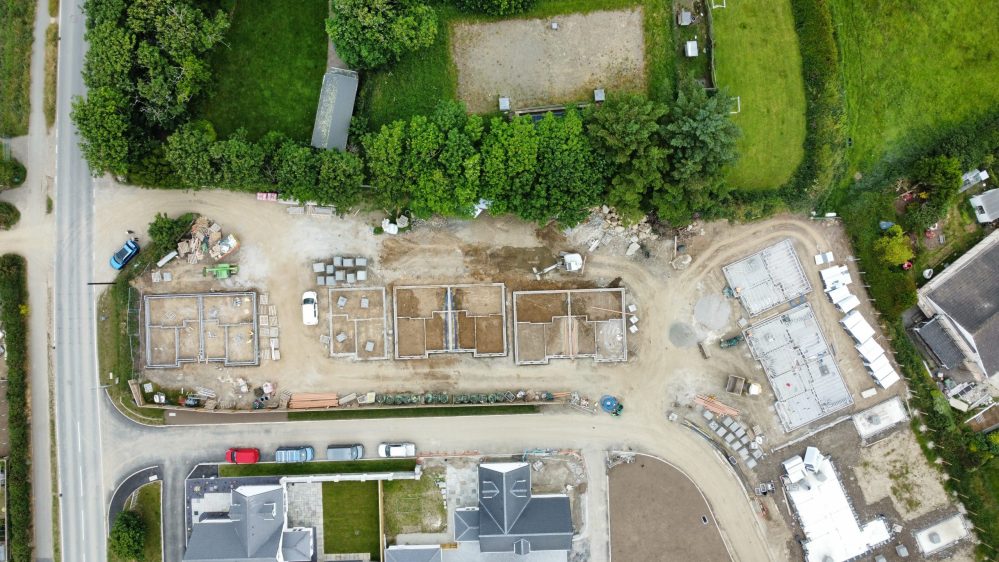News
Badger and the wind of change

 BADGER has previously spoken to you about so-called ‘green energy’. Badger is not sceptical of the value of green energy in improving our country’s energy security: far from it. Badger is not sceptical about the threat that humanity’s need to consume more natural resources poses to our planet. Nope. Badger is bang on with that. Badger is similarly, not sceptical about humanity being the prime mover behind recent climate change (either as the cause or the major cause). Badger is, however, rather doubtful that there is any real taste for the implications of adopting green energy, or even that the green energy can get to where it needs to go in the UK market without massive public investment, tax breaks, or subsidies. Let’s start at the beginning, readers, the key issue of price. In the abstract, people will express a willingness to do many things — pay higher taxes to support the NHS; pay a little more for ethically produced food; and accept that the cost of fuel and power will rise. Badger is, however, convinced that – human nature being what it is — when it boils down to pounds shillings and pence, a voter faced with the certainty of price rises and higher taxes on the one hand and the promise of jam today on the other will opt for the preserve of the status quo. The thing about doomsday readers is that it is always tomorrow, while there are bills to be paid and food to be bought today. Badger has similar feelings about France. In the abstract, he is sure France is a beautiful and fine country, rich in culture and heritage. In the particular, however, it is choc-a-block with the French. All the hot air of all Guardian writers, columnists, correspondents and readers combined crying softly
BADGER has previously spoken to you about so-called ‘green energy’. Badger is not sceptical of the value of green energy in improving our country’s energy security: far from it. Badger is not sceptical about the threat that humanity’s need to consume more natural resources poses to our planet. Nope. Badger is bang on with that. Badger is similarly, not sceptical about humanity being the prime mover behind recent climate change (either as the cause or the major cause). Badger is, however, rather doubtful that there is any real taste for the implications of adopting green energy, or even that the green energy can get to where it needs to go in the UK market without massive public investment, tax breaks, or subsidies. Let’s start at the beginning, readers, the key issue of price. In the abstract, people will express a willingness to do many things — pay higher taxes to support the NHS; pay a little more for ethically produced food; and accept that the cost of fuel and power will rise. Badger is, however, convinced that – human nature being what it is — when it boils down to pounds shillings and pence, a voter faced with the certainty of price rises and higher taxes on the one hand and the promise of jam today on the other will opt for the preserve of the status quo. The thing about doomsday readers is that it is always tomorrow, while there are bills to be paid and food to be bought today. Badger has similar feelings about France. In the abstract, he is sure France is a beautiful and fine country, rich in culture and heritage. In the particular, however, it is choc-a-block with the French. All the hot air of all Guardian writers, columnists, correspondents and readers combined crying softly
into their polenta while sipping their fairtrade herbal tea is unlikely to change a single mind about green energy; still less in an economy where people at the sharp end are facing the reality of high energy prices and low incomes. Badger believes the problem is more than one of communication and persuasion. there is a massive disconnect between the public and policy. There are several reasons for this.. but Badger wants to draw attention to two in particular. The scientific consensus is that climate change is being either accelerated or caused by humans. Climate change is a fact, even though it is expressed as ‘a theory’. but a scientific theory is not the same as just an idea that is somehow unprovable. Science is built upon the scientific method, a logical process of observation, experiment and analysis subject to peer-review. Scientists arrive at a consensus about the evidence that supports a particular set of principles about the science being researched. Arriving at a scientific consensus is not something that happens overnight. The slow process by which science arrives at a consensus keeps out poorly supported ideas, but gives strength to ideas that have lots of evidence. So, readers, when the media report on climate change and we see — for example — a newspaper columnist being given time to say that there is no such thing as climate change; we should take their assertions with a large pinch of salt. Newspaper columnists are seldom scientists. Politicians do not subject their judgements to the scientific method. if they did, you would have to ask where George Osborne fits into the tree of life. Neither politicians nor columnists even those with public school and
Oxbridge backgrounds understand the important distinction between scientific theory and rabble-musing argumentation. The second part follows closely from the first. The media presents a false equivalence between the scientific consensus and those who do not accept it.
Dr Nedwin Shellwinkle, Professor of Marmalade at the Ohio Institute of Jam-making and Chutney Creation, might be the bees knees on how to get loganberry preserve to the setting point. His qualifications as either “professor” or “doctor” are, however, most unlikely to give him insight into the complex systems of geophysics, chemistry and atmospheric dynamics to enable him to reach a considered and research-validated conclusion about climate change. Similarly, the facts that Lord Lawson has the reputation of being awfully clever and that he was once Chancellor of the Exchequer do not mean that his opinion is of equal weight to a scientific theory. The fact he can find people who believe as he does not mean that he has built a countervailing consensus of similar weight to the scientific one. So, readers, when the public are asked to think about ‘green’ energy and ‘green’ methods of power production, there is an awful lot of bag and baggage to get through. If the public do not believe that climate change is taking place or that it will affect them, they will not be interested in ‘greenness’. The other side of that is self-interest, if it will cost them more, people will cling to any opinion — no matter how facile or misinformed —to justify doing nothing. That is the expedient and selfish approach to most issues. It is human nature. And so, readers, at the point
we come to superficiality, we come to David Cameron. Funny that. If David Cameron thought there were five hundred votes in every marginal constituency that the Conservatives could get if they were a bit ‘greener’ in word and deed, you can damn well guarantee that the UK would be festooned with wind farms in such density and of such number that it could ride out any increase in sea levels by hovering over the lapping waves. That is die expedient and selfish approach to most issues. It is human nature. In Pembrokeshire of course, we are no strangers to local politician adopting expedient positions Jolin Allen-Mirehouse said he objected to one wind far development in 0 1 2 on the grounds that it would spoil his view of the peasants working in his fields (or something like that). Funny how old Johnny was rather more on board with being green when there was the chance of having some turbines on his own land. That is the expedient and selfish approach to most issues. It is human nature. All Johnny’s pompous wind-baggery cannot change that. So, if we are to proceed with a ‘green’ agenda those who favour it have to tap into the basest of human feelings. The ones that matter when folk in marginal constituencies vote Conservative but tell pollsters they voted for one of the other lot. Not abstract carbon swaps or our long-term interests. But greed: the here and the now. Persuade the people that you can satisfy their immediate desires — or sate their fear oi and there change -will be real transformation. That readers, will not take a wind of change that will take a miracle.
Community
Public reminded to stay away from Ward’s Yard and Criterion Quay

THE PORT of Milford Haven is reminding members of the public to stay away from Ward’s Yard in Milford Haven and Criterion Quay (sometimes known as the offshore jetty) in Pembroke Dock due to concerns over public safety.
Despite significant security measures, people continue to access the sites illegally, ignoring and sometimes damaging the onsite signage and fences.
Niall Yeomans, Head of Health, Safety and Security at the Port of Milford Haven said: “Safety is our key priority. Members of the public are continuously putting themselves and members of our team at risk of serious harm by trespassing in these areas.”
“Both Ward’s Yard and Criterion Quay are unsafe for public access. They are isolated areas next to deep water and are susceptible to slips, trips and falls.”
Both sites are owned by the Port of Milford Haven and are private property. Anyone found onsite without consent is trespassing, and any criminal damage could result in prosecution.
Anyone who sees any suspicious activity at Ward’s Yard or Criterion Quay is asked to contact Dyfed Powys Police on 101 urgently.
Crime
‘Sophisticated’ organised crime gang trafficked cocaine and cannabis to Aberystwyth

FIVE people have been found guilty or admitted to conspiring to supply cocaine and cannabis as Dyfed-Powys Police continues its efforts to dismantle organised crime gangs.
Officers seized cocaine with a street value of more than £400,000 from gang members, who continually changed tactics to avoid arrest.
Six defendants have appeared in court in the latest phase of Dyfed-Powys Police’s Operation Burleigh, which sought to disrupt the trafficking and onward supply of class A and B drugs into Aberystwyth, with all but one admitting their charges or being found guilty by a jury.
This brings the total number of people awaiting sentence under the operation to 15.
The court heard that officers from Dyfed-Powys Police’s Serious and Organised Crime Team and Ceredigion Priority Policing Team led the investigation into the OCG, which was described as ‘sophisticated, well-organised and evolving’.
Detective Sergeant Steven Jones said: “This conspiracy operated on a County Lines model, where controlled drugs are trafficked into a smaller rural town from a larger city, and the operation is controlled by one or more ‘drugs lines’.
“In this case there were a total of four lines controlling the supply of cocaine and cannabis within Aberystwyth.
“The conspirators frequently evolved their actions to frustrate the authorities and evade capture.”
The OCG embedded members were mainly asylum seekers brought to Aberystwyth by Toana Ahmad and another man who remains outstanding, with the sole purpose of dealing drugs. The drug lines were initially based in Swansea, and later in areas of Birmingham.
Three properties – on Terrace Road, Alexander Road and Parc Graig Glas – were identified early in the investigation as being used to house the OCG members embedded in Aberystwyth. Substantial amounts of cash, controlled drugs and weapons were recovered from these properties, and from the people found inside.
When arrests were made, the gang changed its tactics. Drugs began to be supplied from vehicles, and OCG members stayed in guest houses to avoid detection.
DS Jones added: “Trusted couriers were employed to transport drugs to Aberystwyth and cash back to Birmingham or Swansea. A number of vehicles, including taxis, were used as the gang attempted to avoid detection along the route, while trains were also taken when courier cars were stopped by officers.”
In June 2023, two vehicles travelling from the West Midlands towards Aberystwyth were stopped by police on consecutive days. A black sock was uncovered in the engine of the first car, which was found to contain 82g of high purity cocaine divided into 169 grip seal plastic bags.
Davinder Singh, who previously pleaded guilty to conspiracy to supply class A and class B drugs, was the driver of the second vehicle, which was a taxi. A blue plastic bag was seen falling out of his shorts, which contained over 81g of high purity cocaine divided into 167 grip seal bags.
DS Jones said: “On the basis that the amounts of cocaine transported over the 37 couriers over the course of the conspiracy period were similar, over 3kg of cocaine would have been conveyed to Aberystwyth from Birmingham.
“This equates to class A drugs with a potential street value of over £308,950. In addition to this, class A drugs were seized from individuals and addresses with a potential street value of £103,445, along with cash totalling £11,687.
“A number of teams and departments across Dyfed-Powys Police, from analysts, CCTV operators and priority policing teams, to CAB, the Technical Support Unit, Economic Crime Team and Force Intelligence Bureau all assisted in dismantling the OCG from top to bottom.
“Their dedication and relentless efforts have assisted in making Aberystwyth a safer place to live without the threat and harm of drugs being made easily available on the street.”
After a seven-week trial at Swansea Crown Court earlier this year, the following three defendants were found guilty for their parts in the conspiracy:
- Toana Ahmad, aged 33, of Lee Gardens in Smethwich, West Midlands
- Barzan Sarhan, aged 31, of no fixed address
- Ahmed Piro, aged 26, of no fixed address
The jury failed to reach a verdict on two defendants during the earlier trial. They have been subject to a retrial starting on July 1, with the following outcomes:
- Hawre Ahmed, aged 35, of Pinderfields Road, Wakefield, West Yorkshire, was found guilty by the jury of conspiracy to supply Class A and B controlled drugs.
- Diar Yousef Zeabari, aged 35, of Flat 5, 41 Bryn Road, Swansea, was found not guilty of conspiracy to supply Class A and B controlled drugs.
Karwan Karim, aged 39 of 125 Griffith John Street, Swansea, also stood trial, and pleaded guilty to conspiracy to supply Class A and B controlled drugs on day three.
In addition to the OCG members found guilty during the most recent trials, the following have previously pleaded guilty to charges of conspiracy to supply class A and class B drugs under Operation Burleigh:
- Davinder Singh, aged 36, of Huntingdon Road, West Bromwich
- Daban Khalil, aged 23, of Streetly Road, Birmingham
- Kastro Omar, aged 30, of Junction Road, Northampton
- Karwan Jabari, aged 26, of Weedon Close, Northampton
- Walid Younis Abdal, aged 34, of St Anne’s Road, Doncaster
- Saman Aziz, aged 41, of Kirk Road, Merseyside
- Adel Mustafa, aged 39, of Hubert Road, Newport
- Charlotte Roberts, aged 21, of Sutton Hill, Telford
The following have previously pleaded guilty to conspiracy to supply class A drugs:
- Akasha Smith, aged 24, of Third Avenue, Aberystwyth
- Luqman Jarjis, aged 21, of Wake Green Road, Birmingham
News
Community asked for views on allocation of new St Davids homes

THE FIRST phase of Pembrokeshire County Council’s Glasfryn housing development in St Davids is progressing well with the second phase also underway.
The development being built by GRD Homes Ltd, began in November 2023, with a first phase completion date of Winter 2024 looking hopeful, ahead of the scheduled plans.
The first phase consists of seven properties, including a mixture of one and two bedroom bungalows
As completion draws closer the properties will be advertised via Pembrokeshire Choice Homes.
Ahead of this, the Council’s housing team will be holding community engagement on the 13th August 2024 at the Ty’r Pererin Centres, Quickwell Hill, St Davids, SA62 6PD, 5pm-7pm.
This will be a chance for officers to liaise with the local community about the allocation process for these properties.
Glasfryn’s second phase is well underway, with the initial groundwork already completed. This phase includes a further 11 two bedroom bungalows, with a completion date in late 2025.
These bungalows will meet the latest Welsh Government’s Development Quality Requirement, and will be energy efficient, built to EPC A specification and include solar panels to help tenants with running costs.
The Glasfryn development is funded in partnership with Welsh Government.
Cabinet Member for Housing Cllr Michelle Bateman said: “We are really keen to work with the community on a local lettings policy for these new properties, as we have done for our developments in other parts of the County.”
If you have any queries please email the Customer Liaison Team on [email protected], phone them on 01437 764551, or visit Housing’s Facebook page.
-

 Education5 days ago
Education5 days agoMilford Tesco worker achieves Oxford dream and lands top legal job
-

 Crime4 days ago
Crime4 days agoHaverfordwest man admits having nearly 1000 child and animal images
-

 Crime4 days ago
Crime4 days agoYouth set to appear in court over serious sexual offences
-

 Crime4 days ago
Crime4 days agoPolice investigating after man injured during altercation in cemetery
-

 Education4 days ago
Education4 days agoPupils delight in ice cream treat from Pembrokeshire’s number one van
-

 Crime4 days ago
Crime4 days agoTown centre ‘stinking of skunk’ as police strip cannabis farm
-

 Crime3 days ago
Crime3 days agoFag-butt police court summonses spark debate in Pembrokeshire
-

 News6 days ago
News6 days agoProposal to give firefighters a council tax discount to go to Cabinet




























